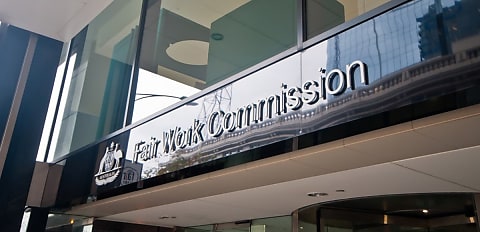This morning (Tuesday, 3 June) the FWC unveiled its Annual Wage Review decision, determining to increase the minimum wage by 3.5 per cent, resulting in the hourly wages increasing to $24.94.
For around 2.6 million workers (20.7 per cent of the workforce) across Australia, the decision brings a pay rise to combat cost-of-living struggles.
During the live-streamed announcement, FWC president Justice Adam Hatcher said that workers on real modern award wages “Have suffered a reduction in the real value of their wage rates.”
Throughout the federal election campaign, the Labor government filed a submission to the FWC in support of an “economically sustainable real wage increase” but wouldn’t confirm an exact figure at the time.
The Australian Council for Trade Unions (ACTU) did put a figure forward, pushing for a 4.5 per cent increase on the minimum wage.
“Australia’s lowest-paid workers need and deserve a decent real wage increase,” said ACTU secretary Sally McManus.
“A 4.5 per cent rise for 2.6 million award-reliant workers is what they need to get ahead of inflation caused by global supply problems and price gouging by the likes of supermarkets and insurance companies.”
Throughout the submission period, employer groups said that if a wage increase were to be implemented, it must align with productivity growth. Both the Australian Chamber of Commerce and Industry (ACCI) and Australian Industry Group (Ai Group) called for a much lower increase than the unions.
“An increase in minimum and modern award wages of no more than 2.5 per cent is fair and reasonably responsible in the current economic environment,” said ACCI CEO Andrew McKellar.
“To be sustainable, any increase in wages must be linked to productivity. Yet, labour productivity has been contracting, down 1.2 per cent in 2024 and averaging near zero over the past five years.
“Failure to align wages growth with genuine productivity improvements risks exacerbating economic challenges and will rekindle inflationary pressure.”
Additionally, Ai Group CEO Innes Willox labelled the ACTU’s proposal as “reckless”, saying that “a proposal higher than 2.6 per cent is completely unjustified”
The decision and order will come into operation on 1 July, following the end of the financial year.
This article was originally featured in Broker Daily sister brand HR Leader.
